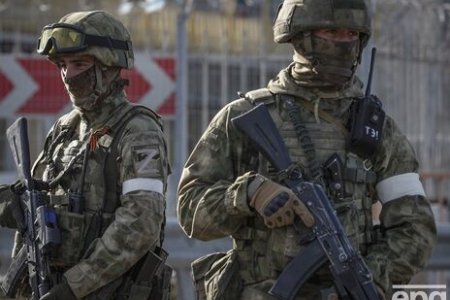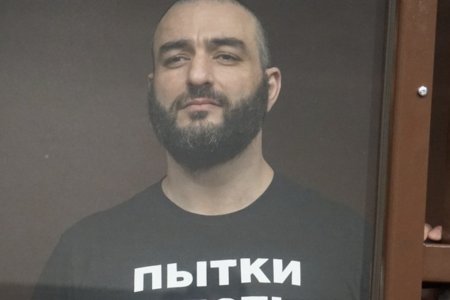
Russia’s Southern District Military Court has sentenced Mykola Zabirko to five and a half years in a maximum-security prison colony for supposedly trying to blow up the Russian-installed ‘mayor’ of Mariupol. Kostiantyn Ivashchenko. Zabirko, a 57-year-old pensioner, looking after his elderly mother, denied any involvement.
An attempt on Ivashchenko’s life does seem to have taken place on 20 August 2022., with an explosion while he was driving past. He remained unharmed.
The Russians typically react to any act of partisan resistance by grabbing people and extracting ‘confessions’ through torture. Their use of illegal methods does not end there since any claim by an invading power that an attack on a direct accomplice to Russia’s war of aggression against Ukraine can be labelled ‘terrorism’ is preposterous. It is also a violation of international law for an occupying state to forcibly transfer Ukrainian citizens to Russian territory and to put them on ‘trial’ under Russian legislation.
It is unclear how long Zabirko has already been held in captivity, with it not even guaranteed that he was seized after the apparent attempt on Ivashchenko’s life. The Russians have, on several occasions, abducted Ukrainian civilians, held them totally incommunicado, and then later ‘convicted’ them of alleged crimes they could not have committed as they were already imprisoned.
Zabirko did, at least, have a lawyer who in May applied for his client to be released from detention on health grounds (high blood pressure and varicose veins), as well as because he needed to care from his elderly mother. As is virtually always the case, the application was rejected,
Zabirko was charged with illegally obtaining and possessing explosives (Article 222.1 § 1 of Russia’s criminal code) and with an ‘attempting act of terrorism’ (Article 205 § 2a, Article 30 § 3). It was claimed that Zabirko had corresponded with an SBU [Ukrainian Security Service officer) in July 2022; and gathered information about Ivashchenko’a movements and planned to blow up his car. The prosecution further asserted, without endeavouring to explain how, that Zabirko had collected a parcel, with keys to a car and two speakers, one of which contained a remote-control detonator to a homemade explosive device supposedly attached to the car. He had, purportedly, kept this parcel in a garage unit, with the story not really making sense. On the one hand, there was an explosion, on the other, it is claimed that Zabirko had not been able to carry out the act as he was supposedly detained by ‘enforcement officers’
There was also a second charge of having received a grenade as a present from Ukrainian soldiers in March 2022.
During the ‘trial’, Zabirko admitted to having received the grenade given by Ukrainian defenders, but denied the first, and more serious, charge, insisting that he had never planned any attack. This was evidently ignored, with the prosecutor demanding a 13-year sentence, and the court, on 8 August 2024, finding him ‘guilty’ but sentencing him to a significantly lower sentence, of five and a half years.
Iryna Kulish
On 29 July 2024, Russia’s Investigative Committee reported that 52-year-old Iryna Kulish from occupied Zaporizhzhia oblast had been sentenced to seven years’ imprisonment. The charges in her case were similar, but even more cynical, with the Ukrainian woman living on her own Ukrainian territory, charged with ‘international terrorism’. Article 361 of Russia’s criminal code is a relatively new ‘offence’ which Russia has only been using against Ukrainians on occupied territory since 2022.
Kulish was accused of ‘planning to commit an act of international terrorism’ (Article 361 § 1 and 30 § 1); illegal purchase, possession, etc. of explosive devices and possession of drugs, not for sale (Articles 222.1 § 3 and 228 § 1).
Russia’s abduction of civilians from occupied territory is already terrifyingly secretive, with people simply disappearing. In this case, the only identifiable fact for the vague charges is that Iryna Kulish is supposed to have been planning this alleged ‘act’ in September 2022. This was when Russia staged a fake ‘referendum’ to claim justification for its violent seizure of Ukrainian territory, and Russia claimed to be hunting out ‘saboteurs’. Since the claim is that she was planning such an ‘act’, but was thwarted in this by the occupation ‘enforcement bodies’, there is no way of proving whether there ever was a planned ‘attack’. Most chillingly, there is nothing to indicate whether she had any access to a lawyer or contact with her family, with people held incommunicado in particular danger of torture.
See also:



